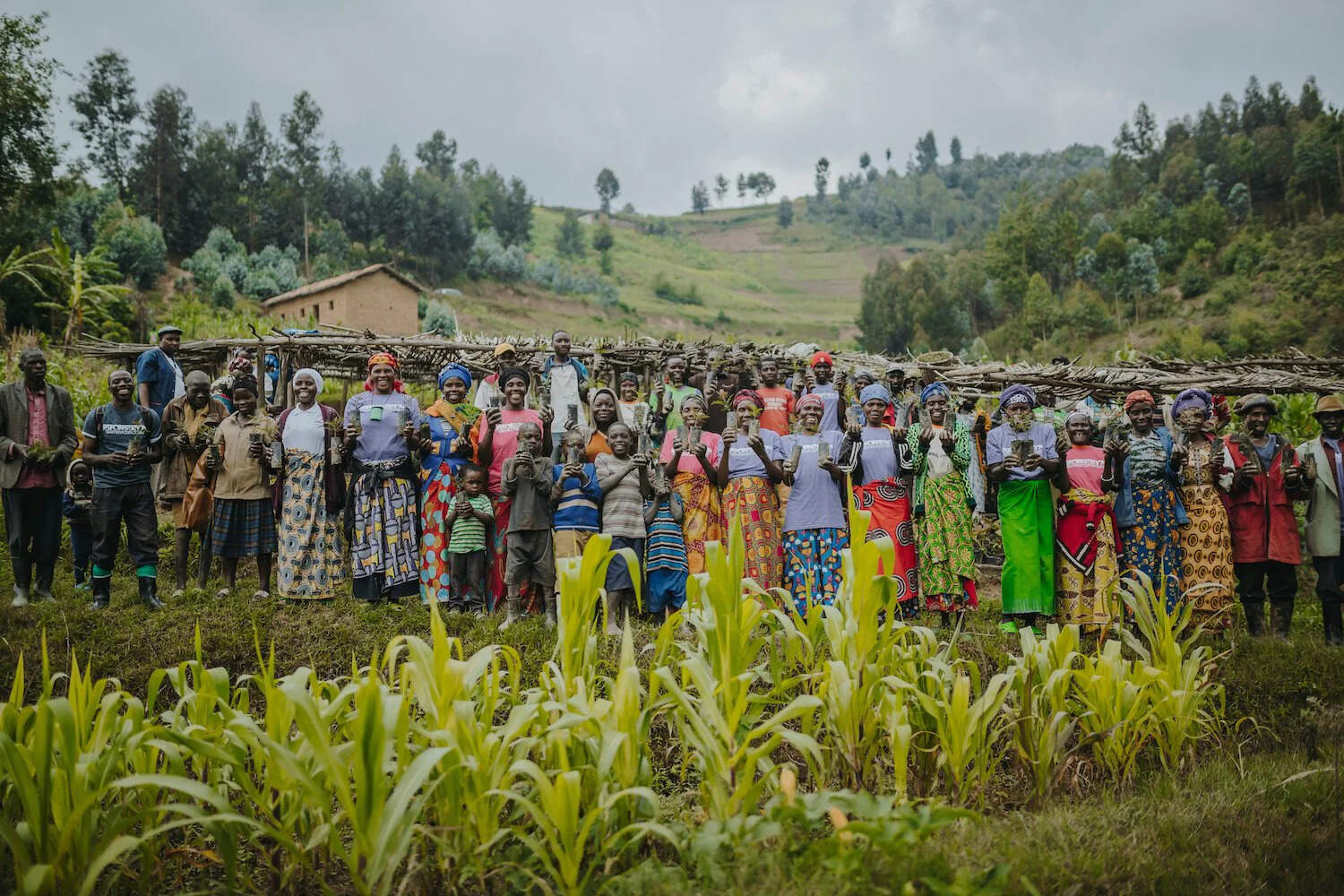
Sustainable development is a topic of growing importance as society recognizes the need to protect our planet and secure a better future for generations to come. It encompasses the idea of meeting present needs without compromising the ability of future generations to meet their own needs. As the world grapples with environmental challenges and the consequences of climate change, understanding and implementing sustainable development practices are crucial for the well-being of both people and the planet.
In this article, we will explore 17 fascinating facts about sustainable development that shed light on the progress being made and the challenges that lie ahead. From innovative solutions to global initiatives, these facts highlight the efforts being made to create a more sustainable and resilient future for our world. So, let’s delve into these facts and discover how sustainable development is shaping our future.
Key Takeaways:
- Sustainable development involves balancing economic, social, and environmental aspects for a better future. It’s about using resources wisely and creating a world where everyone can thrive.
- Education, renewable energy, and gender equality are crucial for sustainable development. By working together and making responsible choices, we can build a better world for generations to come.
Sustainable development encompasses three core dimensions.
Sustainable development is based on three fundamental pillars: economic, social, and environmental. These dimensions are interconnected and must be addressed together for long-term sustainability.
The concept of sustainable development emerged in the 1980s.
In 1987, the World Commission on Environment and Development introduced the concept of sustainable development in the landmark report “Our Common Future.” This report emphasized the need for balancing economic growth, social progress, and environmental protection.
The United Nations adopted the Sustainable Development Goals (SDGs).
In 2015, the UN member states committed to achieving 17 Sustainable Development Goals by These goals address various global challenges, including poverty, hunger, education, gender equality, clean energy, and climate action.
Sustainable development promotes responsible consumption and production.
One of the key aspects of sustainable development is promoting sustainable consumption and production patterns. This involves reducing waste generation, utilizing resources efficiently, and adopting eco-friendly practices.
Education plays a crucial role in sustainable development.
By promoting education and awareness about sustainability issues, individuals can make informed choices and take actions to contribute to sustainable development. Education empowers people to become active global citizens.
Sustainable cities and communities are vital for sustainable development.
Creating inclusive, safe, resilient, and sustainable cities is essential for achieving sustainable development. These cities prioritize efficient resource management, access to basic services, and sustainable urban planning.
Sustainable development requires partnerships and collaboration.
Achieving sustainable development goals requires the involvement of various stakeholders, including governments, businesses, civil society organizations, and individuals. Collaboration and partnerships help mobilize resources and expertise.
Renewable energy is a key component of sustainable development.
Transitioning from fossil fuels to renewable energy sources such as solar, wind, and hydroelectric power is crucial for sustainable development. Renewable energy reduces greenhouse gas emissions and promotes cleaner, more sustainable energy systems.
Sustainable agriculture ensures food security.
Adopting sustainable agricultural practices helps enhance food production while minimizing environmental impact. This includes promoting organic farming, reducing pesticide use, and preserving biodiversity.
Water scarcity is a significant challenge for sustainable development.
Access to clean water is essential for human well-being and sustainable development. However, many regions face water scarcity due to climate change, population growth, and inadequate water management.
Sustainable development promotes gender equality.
Gender equality is integral to sustainable development. Empowering women and girls, ensuring equal access to education and healthcare, and promoting women’s participation in decision-making are critical for achieving sustainable development goals.
Sustainable tourism supports local economies and the environment.
Sustainable tourism practices focus on minimizing negative environmental impacts, preserving cultural heritage, and providing economic benefits to local communities. Sustainable tourism promotes responsible travel and tourism development.
Sustainable infrastructure enhances resilience.
Building resilient infrastructure that can withstand natural disasters, climate change impacts, and other challenges is essential for sustainable development. Sustainable infrastructure includes energy-efficient buildings, reliable transportation systems, and efficient waste management.
Climate action is a central component of sustainable development.
Taking action to mitigate climate change and adapt to its impacts is crucial for achieving sustainable development. This includes reducing greenhouse gas emissions, promoting renewable energy, and implementing climate change adaptation strategies.
Sustainable development addresses social inequalities.
Sustainable development aims to reduce social inequalities and ensure that everyone has access to essential services, such as education, healthcare, and clean water. It seeks to create inclusive societies where no one is left behind.
The private sector plays a vital role in sustainable development.
Businesses have a significant responsibility to contribute to sustainable development. By adopting sustainable practices, investing in renewable energy, and promoting ethical business operations, the private sector can drive positive change.
Sustainable development is essential for the well-being of future generations.
By prioritizing sustainable development, we can ensure a better future for generations to come. It is our collective responsibility to preserve the planet, promote equity, and strive for a sustainable and prosperous world.
These 17 fascinating facts about sustainable development offer a glimpse into its importance and impact on various aspects of society. By understanding and actively engaging in sustainable practices, we can contribute to a more sustainable and equitable future for all.
Conclusion
These 17 fascinating facts about sustainable development highlight its importance in creating a better future for our planet. From reducing poverty and inequality to promoting clean energy and sustainable practices, sustainable development is an ongoing effort that requires global collaboration.
By understanding the principles and goals of sustainable development, we can all contribute to building a more prosperous and sustainable world for generations to come. It is essential to prioritize sustainable development in our personal and professional lives and work towards creating a balanced and resilient future for all.
FAQs
1. What is sustainable development?
Sustainable development is a concept that emphasizes the need to balance economic growth with social well-being and environmental protection. It aims to meet the needs of the present generation without compromising the ability of future generations to meet their own needs.
2. Why is sustainable development important?
Sustainable development is important because it helps to ensure the long-term health and well-being of both people and the planet. It allows us to address global challenges such as poverty, climate change, and resource depletion in a holistic and responsible manner.
3. How does sustainable development promote environmental protection?
Sustainable development promotes environmental protection by encouraging practices that reduce resource consumption, minimize waste generation, and limit pollution. It aims to preserve biodiversity, promote clean energy, and promote sustainable land use and resource management.
4. What are the Sustainable Development Goals (SDGs)?
The Sustainable Development Goals are a set of 17 goals adopted by the United Nations in 2015. They cover a wide range of objectives, including ending poverty and hunger, achieving gender equality, ensuring access to clean water and affordable clean energy, and combating climate change.
5. How can individuals contribute to sustainable development?
Individuals can contribute to sustainable development by making conscious choices in their daily lives. This can include adopting sustainable consumption and production practices, reducing waste, conserving energy and water, supporting renewable energy sources, and advocating for sustainable policies and practices.
Was this page helpful?
Our commitment to delivering trustworthy and engaging content is at the heart of what we do. Each fact on our site is contributed by real users like you, bringing a wealth of diverse insights and information. To ensure the highest standards of accuracy and reliability, our dedicated editors meticulously review each submission. This process guarantees that the facts we share are not only fascinating but also credible. Trust in our commitment to quality and authenticity as you explore and learn with us.


